Search
Search Results
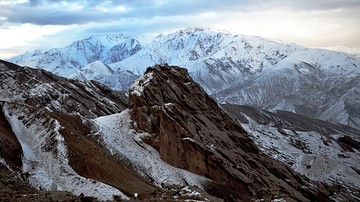
Definition
The Assassins
The Assassins (aka Nizari Ismailis), were a heretical group of Shiite Muslims who were powerful in Persia and Syria from the 11th century CE until their defeat at the hands of the Mongols in the mid-13th century CE. Secure in their fortified...

Definition
Ancient Armenia
Ancient Armenia, located in the south Caucasus area of Eurasia, was settled in the Neolithic era but its first recorded state proper was the kingdom of Urartu from the 9th century BCE. Incorporated into the Persian Empire of Cyrus the Great...
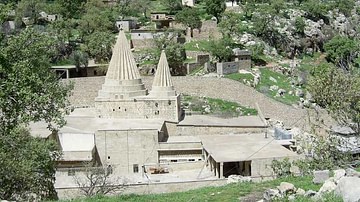
Definition
Yazidism
Yazidism is a syncretic, monotheistic religion practiced by the Yazidis, an ethnoreligious group which resides primarily in northern Iraq, northern Syria, and southeastern Turkey. Yazidism is considered by its adherents to be the oldest religion...
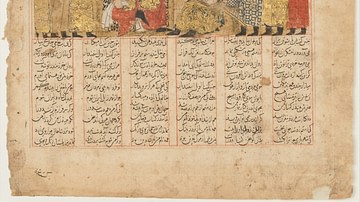
Definition
Shahnameh
The Shahnameh (“Book of Kings”, composed 977-1010 CE) is a medieval epic written by the poet Abolqasem Ferdowsi (l. c. 940-1020 CE) in order to preserve the myths, legends, history, language, and culture of ancient Persia. It is the longest...

Definition
Persian Literature
Persian literature differs from the common definition of “literature” in that it is not confined to lyrical compositions, to poetry or imaginative prose, because the central elements of these appear, to greater or lesser degrees, in all the...
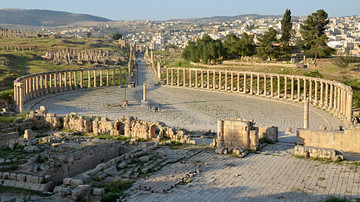
Definition
Jerash
Jerash (aka Gerasa, Gerash or Gerasha) is the capital and the largest city of the Jerash Governorate in Jordan, but in ancient times it was one of the wealthiest and most cosmopolitan cities in the ancient Near East. Settled by humans as...
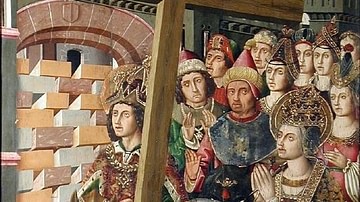
Definition
Heraclius
Heraclius (Herakleios) was emperor of the Byzantine Empire from 610 to 641 CE. He crushed the Persian empire and returned the looted True Cross to Jerusalem, but the second half of his reign was beset by intrigues and ecclesiastical controversies...

Definition
Byzantine Coinage
The coinage of the Byzantine Empire continued that of its more ancient predecessors and functioned as a convenient method of payment for goods and services, especially to soldiers and officials, and as a means for people to pay their taxes...

Definition
Möngke Khan
Mongke Khan was ruler of the Mongol Empire (1206-1368 CE) from 1251 to 1259 CE. As the third Great Khan or 'universal ruler' of the Mongols, Mongke would oversee administrative reforms that continued to centralise government and ensure he...
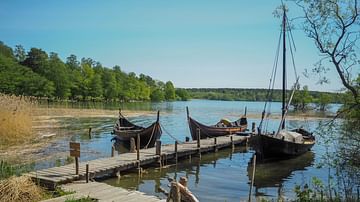
Definition
Birka
Birka, located on the island of Björkö in present-day Sweden, was an important trading center and strongly fortified town in the Viking Age which flourished from the 8th through the 10th centuries CE. Along with the town of Hedeby which is...